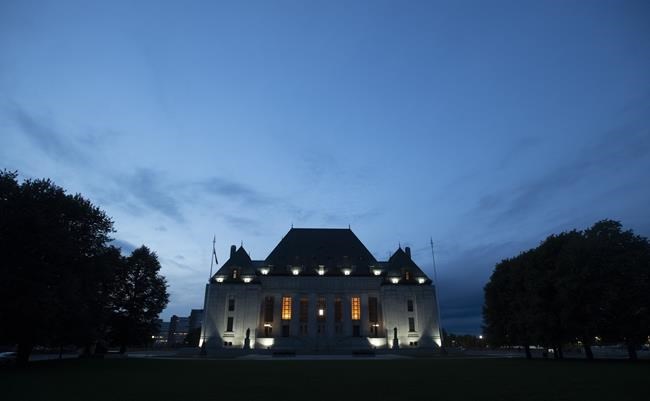OTTAWA — MediaQMI journalists are not allowed access to exhibits that were once part of a Quebec court file, the Supreme Court of Canada has ruled.
The 5-4 decision came Friday in a case that began five years ago when a Montreal health-services centre commenced an action against Magdi Kamel, a former manager.
The Centre intégré universitaire de santé et de services sociaux de l’Ouest‑de‑l’Île‑de‑Montréal sought repayment of allegedly misappropriated funds, along with damages, and requested an order to obtain relevant information from a bank.
The Journal de Montréal newspaper, published by MediaQMI, applied for access to the Quebec Superior Court record, which contained four exhibits.
In April 2017 the centre discontinued its action against Kamel and tried to retrieve the exhibits from the court file. However, court staff could not find the record.
The court subsequently ordered that the record be unsealed but allowed the centre's request to collect the exhibits — a decision MediaQMI unsuccessfully challenged in the Quebec Court of Appeal.
A majority of the Supreme Court affirmed the centre's right to retrieve the exhibits, which included an expert forensic accounting report.
"The importance of the principle of open court proceedings is no longer a matter of controversy today," Justice Suzanne Côté wrote on behalf of the majority.
"But however important a principle may be, it is not without limits."
Quebec's Code of Civil Procedure allows public access to court records without prior authorization.
However, the code also says parties are permitted to retrieve their exhibits in the course of a proceeding if all of them consent. Once a proceeding wraps up, parties are obliged to do so. Otherwise, the exhibits may be destroyed by the court clerk after a year.
Côté said that once the parties collect their exhibits at the end of a proceeding, members of the public will still be able to consult the court record, "but will no longer have access to the exhibits that have been removed from it."
The court noted MediaQMI did not contest the discontinuance that ended the proceeding, and therefore nothing prohibited the centre from retrieving its exhibits.
Four dissenting judges would have allowed the appeal and said the matter should have been returned to the Quebec court to decide access to the exhibits.
They said from the moment MediaQMI applied to unseal the record and access the exhibits, a new proceeding began, one that went beyond the strictly private interests of the parties in the main action.
The discontinuance could not trump that new proceeding, which related to the proper functioning of the courts, whose legitimacy depends on openness and media scrutiny, the dissenting judges added.
This report by The Canadian Press was first published May 28, 2021.
Jim Bronskill, The Canadian Press




